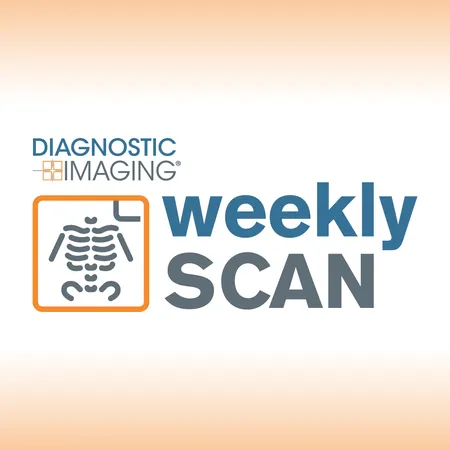
Revolutionary Advances in Diagnostic Imaging: Key Insights from the Week of October 27 - November 2, 2024
2024-11-02
Author: Mei
1. Game-Changing Nomogram for Rectal Cancer Patients
In a remarkable breakthrough, researchers have developed an innovative nomogram that leverages deep learning algorithms alongside clinical factors. This technology achieved significant increases in accuracy and specificity—over 16% and 23%, respectively—when predicting tumor deposits pre-operatively in rectal cancer patients. This advancement could lead to more precise surgical planning and tailored treatment strategies.
2. The Breast Cancer Screening Dilemma: A Podcast Discussion
In a thought-provoking three-part podcast series, Dr. Anand Narayan and Dr. Amy Patel explored the pressing challenges surrounding expanded breast cancer screening. The discussions highlighted the current shortage of radiologists and the increasing pressure on their worklists as medical demands rise. Solutions and strategies to address these critical issues were thoroughly examined, shedding light on the importance of balancing patient needs with the limitations of medical resources.
3. Next-Gen MRI Technology Unveiled
The latest advancements in MRI technology were unveiled with the introduction of the 10th version of the 1.5T MRI platform, featuring innovations such as Synergy DLR Clear and Synergy Vision. These technologies are designed to combat common imaging challenges, including artifacts that can compromise image quality, thus enhancing diagnostic accuracy for a wide range of conditions.
4. Al-Powered Assessment in Cardiovascular Health
Another significant study presented at the Transcatheter Cardiovascular Therapeutics (TCT) conference demonstrated the potential of AI-driven quantitative assessments in coronary CT angiography (CCTA). The research found that patients who experienced major adverse cardiovascular events had non-calcified plaque volumes more than 3.5 times higher than those who did not. This finding underscores the critical role of advanced imaging techniques in early cardiovascular risk assessment and intervention strategies.
5. Contrast-Enhanced Mammography Shows High Sensitivity
A decade-long study involving over 5,400 women, 85% of whom had dense breast tissue, revealed that contrast-enhanced mammography (CEM) achieved a remarkable sensitivity rate of 95.9% for breast cancer detection. This high level of accuracy indicates that CEM can significantly improve early diagnosis in women at risk, making it a vital tool in the fight against breast cancer.
The week of October 27 - November 2, 2024, showcased significant strides in diagnostic imaging, emphasizing the need for continuous innovation in medical technology to ensure better patient outcomes and enhance the effectiveness of medical interventions. As research and technology progress, we can anticipate more breakthroughs that will ultimately transform the landscape of healthcare. Stay tuned for more updates on these exciting developments!

 Brasil (PT)
Brasil (PT)
 Canada (EN)
Canada (EN)
 Chile (ES)
Chile (ES)
 España (ES)
España (ES)
 France (FR)
France (FR)
 Hong Kong (EN)
Hong Kong (EN)
 Italia (IT)
Italia (IT)
 日本 (JA)
日本 (JA)
 Magyarország (HU)
Magyarország (HU)
 Norge (NO)
Norge (NO)
 Polska (PL)
Polska (PL)
 Schweiz (DE)
Schweiz (DE)
 Singapore (EN)
Singapore (EN)
 Sverige (SV)
Sverige (SV)
 Suomi (FI)
Suomi (FI)
 Türkiye (TR)
Türkiye (TR)